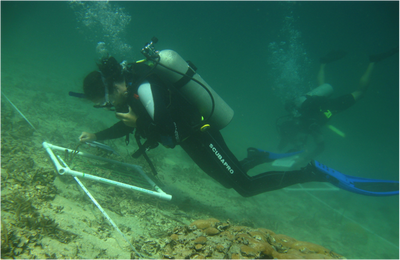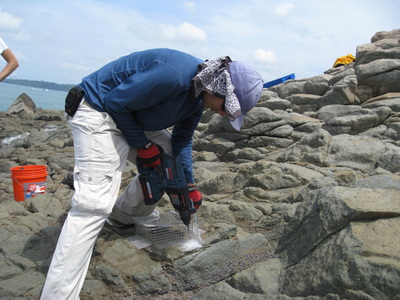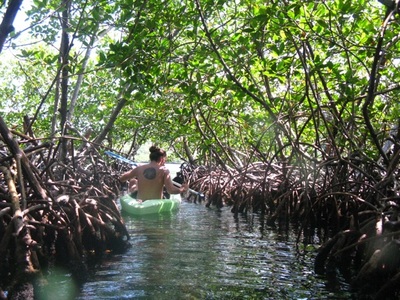Overview
Our work examines how globally relevant factors have cascading effects on the biodiversity and emergent properties of coastal ecosystems. We examine anthropogenic impacts and natural environmental gradients in a variety of habitats to better understand the dynamics of ecosystem properties including resilience, productivity, and output of ecosystem services. We employ an interdisciplinary combination of manipulative field experiments, large-scale observations, historical reconstruction, ecophysiology, and molecular techniques that integrates across perspectives from the organism to ecosystem. In tropical ecosystems we conduct our research in coral reefs, mangroves, seagrass beds, and rocky shores, and in temperate systems we have worked in cobble beaches, marshes, and mud. Our hypothesis-driven research advances ecological theory and informs conservation efforts. Much of our current research on biodiversity, community interactions, and ecosystem properties falls into one or more of the following themes: consumer control of habitat and community structure, low-oxygen areas and associated dead zones, ecosystem engineering by foundation species, indirect positive interactions through facilitation cascades, and development of global perspectives through collaborative experimental networks.
Our work examines how globally relevant factors have cascading effects on the biodiversity and emergent properties of coastal ecosystems. We examine anthropogenic impacts and natural environmental gradients in a variety of habitats to better understand the dynamics of ecosystem properties including resilience, productivity, and output of ecosystem services. We employ an interdisciplinary combination of manipulative field experiments, large-scale observations, historical reconstruction, ecophysiology, and molecular techniques that integrates across perspectives from the organism to ecosystem. In tropical ecosystems we conduct our research in coral reefs, mangroves, seagrass beds, and rocky shores, and in temperate systems we have worked in cobble beaches, marshes, and mud. Our hypothesis-driven research advances ecological theory and informs conservation efforts. Much of our current research on biodiversity, community interactions, and ecosystem properties falls into one or more of the following themes: consumer control of habitat and community structure, low-oxygen areas and associated dead zones, ecosystem engineering by foundation species, indirect positive interactions through facilitation cascades, and development of global perspectives through collaborative experimental networks.



